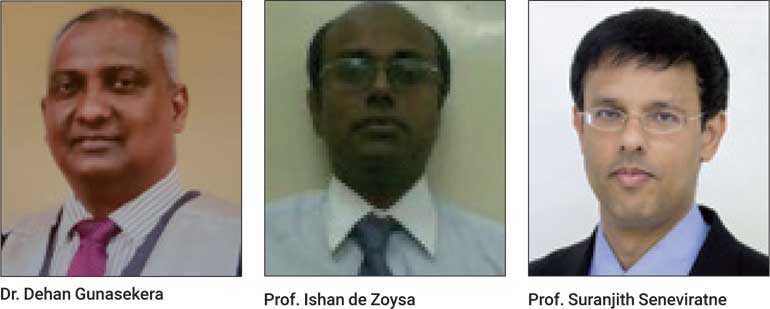Friday Dec 12, 2025
Friday Dec 12, 2025
Monday, 4 May 2020 01:22 - - {{hitsCtrl.values.hits}}

By Medha de Alwis
A group of medical experts last week decried what they described as unnecessary stigma surrounding COVID-19-infected patients.
“There should be no social shame over COVID-19,” Consultant Clinical Oncologist at the National Cancer Institute Sri Lanka Dr. Dehan Gunasekera told a webinar titled ‘Dealing with the Global Pandemic’, organised by the PwC in partnership with the Daily FT. He added that nondisclosure of symptoms to doctors would lead to worse repercussions.
“If a patient hides the symptoms, it would put the healthcare workers at risk. The healthcare workers cannot afford to succumb themselves to unnecessary risks arising out of intentional nondisclosure of symptoms by patients because if the healthcare workers get infected with COVID-19, that would affect the entire healthcare system, as there will then be a scarcity of staff to treat patients,” Dr. Gunasekera explained.
In that context, he pointed out that being honest about the probability of having been contaminated with the virus would be of service to the infected patient in the path of cure, and for the healthcare workers and members of the community in the path to prevention.
University of Colombo – Faculty of Medicine Professor in Surgery and National Hospital Gastrointestinal Surgeon Professor Ishan de Zoysa elaborated on the hygiene measures that need to be adopted. He differentiated the practices to be followed at an office from that followed at a shop. “It is important that the public be sensitive to the burning need to take safety measures,” he added.
Answering a question on the safety with regard to the food and grocery delivery process, Prof. de Zoysa pointed out that it was in the best interest that gloves are worn at all possible circumstances to prevent contamination. “If an outer cover can be placed in the item that are delivered, it can provide with an additional layer of protection,” he added.
Clinical Immunology Specialist from the United Kingdom Professor Suranjith Seneviratne, who joined the discussion from the UK, answered questions raised on the recurrence of COVID-19, highlighting the immune dynamics of the virus.
Prof. Seneviratne explained that though different treatment methods have been tried around the world, with the time period of the pandemic being quite short, it is inadequate time to make a strong statement on the viral response. All three specialists unanimously urged the public to take precautions to mitigate further spread of the virus.